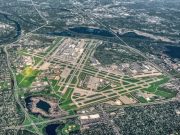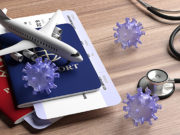The International Air Transport Association (IATA) is praising regulators that have acted to provide more flexibility to airlines and flight crews in dealing with the coronavirus pandemic.
As of Sunday, the virus had sickened 294,110 people in 187 countries, with 12,944 confirmed deaths, according to data from the U.N. World Health Organization. In response to the outbreak, airlines and airports worldwide have implemented health-screening measures, taken associated precautions and cut back on the number of flights.
Gilberto Lopez Meyer, IATA senior vice president, safety and flight operations, said the situation presents airlines with unprecedented challenges.
“Safety is the industry’s top priority,” Lopez Meyer said. “Countries have a well-established licensing system to ensure this. … In this extraordinarily difficult environment, we are grateful for actions to ease regulatory requirements that do not impact the safety of flights.”
As an example, he cited actions by the European Union Aviation Safety Agency (EASA) to allow for the extension of validity periods for licenses, ratings, endorsements and certificates of flight crewmembers, instructors, examiners, maintenance technicians and air traffic controllers, and the extension of airworthiness review certificates.
The UAE General Civil Aviation Authority, the U.K. Civil Aviation Authority and Mexico’s Agencia Federal de Aviación Civil have authorized similar extensions, and the Civil Aviation Administration of China has authorized flexibility in classroom training and the completion of recurrent training requirements, IATA said.
“The actions taken by these regulators will provide airlines and licensed crew with the necessary flexibility for licence extensions without compromising safety,” Lopez Meyer said. “We urge others to quickly follow suit and grant similar short-term relief.”
IATA said that it is offering airlines extension periods of up to six months if an IATA Operational Safety Audit cannot be performed because of coronavirus travel restrictions or other circumstances related to the pandemic.


